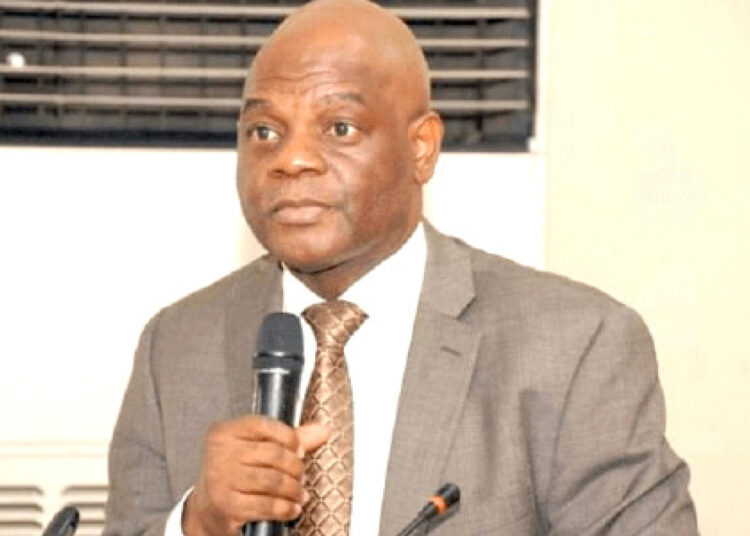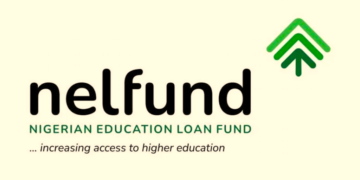The era of digital transformation in Nigerian higher education has continue to unfold, with the Tertiary Education Trust Fund (TETFund) driving a bold agenda to reposition learning, teaching, and administration through technology.
LEADERSHIP earlier reported that at the heart of this push is the nationwide deployment of Blackboard, a learning management system (LMS) developed by Anthology and sponsored by TETFund, across universities, polytechnics, and colleges of education.
For Nigeria’s overstretched higher education system, where classrooms remain inadequate and population growth continues to outpace infrastructure, digitisation offers not just convenience but survival.
As TETFund Executive Secretary, Arc. Sonny Echono, put it recently: “We are no longer confined to the four walls of classrooms. With just an android phone or a device, students should be able to access content, participate in learning, and acquire skills. There is no alternative to technology if we must prepare our youths for the opportunities ahead.”
Blackboard is not just an online portal; it is a digital campus where students, lecturers, administrators, and even parents meet. For students, the platform promises continuous and flexible learning.
With features such as interactive discussions, live lectures, access to recordings, and instant feedback on assignments, learners are no longer bound by lecture halls or timetables. Education becomes mobile, personal, and world-class.
For lecturers, Blackboard transforms teaching into a smarter and more efficient process. Course materials can be uploaded in minutes, assignments graded automatically, and students’ progress tracked in real-time. Collaborative tools such as forums and group projects bring classroom discussions alive, while reducing the burden of paperwork.
Administrators and ICT directors also find relief in the platform’s centralised control. With dashboards for reporting, performance monitoring, and troubleshooting, they can manage academic processes seamlessly. Even parents have a place in this new ecosystem through observer access, which allows them to monitor their wards’ grades, attendance, and feedback.
So far, 267 institutions have been onboarded onto Blackboard. Data shows 2.2 million users uploaded, 47,691 courses created, 12,482 staff trained, and nearly 49,000 instructors enrolled. Yet, only about 40 institutions are fully active, a figure that has prompted concern from TETFund leadership.
Echono has repeatedly warned that the billions invested in ICT infrastructure risk being wasted if institutions fail to embrace digitization fully. The challenge, he says, is not in equipment or connectivity alone but in usage and cultural change.
At a recent workshop in Abuja, TETFund restated its commitment to ensuring that all beneficiary institutions integrate Blackboard into daily academic life. Echono noted that the lessons from the COVID-19 lockdown when televised and radio classes helped boost WAEC resultsshould remind institutions of the power of technology to close learning gaps.
Unfortunately, he lamented, many institutions still cling to outdated practices, including hardcopy submissions of research proposals and reports. “Government has done its part. When equipment is procured and platforms created but not used, that is the very definition of waste,” he stressed.
TETFund’s Director of ICT, Joseph Odo, explained that digitization is not about providing platforms alone but about fostering a new learning culture. “TERAS and Blackboard are not just platforms. They are evolving into an educational lifestyle for students, lecturers, administrators, and even policymakers,” he said.
This cultural shift is already being felt. For instance, the Kaduna State College of Education has become one of the early adopters to fully deploy Blackboard.
Lecturers at the college now upload course materials, interact with students in real-time, and monitor engagement metrics that were once unimaginable in traditional classrooms.
At the official launch in Kafanchan, Anthology’s Vice President for Middle East Africa, Nicolas Alboouze, described it as a historic shift: “From today, the classroom is no longer a room. It is wherever you are, whenever you are ready to learn. No student is left behind, no lecturer is left unsupported, and no dream is out of reach.”
For Anthology, which operates Blackboard globally, Nigeria represents one of the largest-scale deployments in Africa. Adedeji Michael Ladipo, Country Lead Nigeria and Head of Business West Africa, highlighted the platform’s transformative impact. “Blackboard is a gateway to world-class learning where lecturers teach smarter, students learn better, and parents stay fully engaged,” Ladipo said.
He emphasised the efficiency gains for lecturers, noting that automated grading, progress tracking, and easy uploads drastically reduce routine workload. For students, he stressed accessibility and feedback:
“Blackboard ensures that course materials, recordings, and announcements are available anytime, anywhere. Instant access to grades and instructor comments keeps students on track and motivated to improve continuously.”
Administrators too, he said, benefit from streamlined reporting and easier troubleshooting, while parents gain insight into their children’s learning journey. He added that the next step is to expand Blackboard usage across all beneficiary institutions in line with government policy through TETFund, NUC, and the Ministry of Education. Continuous training, student orientation, and regular usage checks, he noted, will be key to sustainability.
TETFund has mapped out a clear roadmap for Blackboard adoption. Institutions are expected to expand Blackboard usage across all campuses, complete student orientation ahead of the September academic calendar, conduct continuous capacity-building for lecturers and administrators, and carry out monthly usage checks to ensure compliance and sustainability.
This roadmap reflects TETFund’s determination to move from infrastructure provision to practical application. The Fund wants to ensure that digitization becomes the backbone of Nigeria’s higher education system.
Nigeria currently ranks 189th globally and 25th in Africa in education competitiveness, according to international indexes. Limited infrastructure, poor teacher-student ratios, and inconsistent quality control continue to hold the system back. Digitization offers a way out.
By bridging physical gaps with virtual solutions, Blackboard and other TETFund-backed platforms like TERAS could democratize access to quality education. For students in rural areas, it could mean access to lectures from top professors in Lagos or Abuja.
For lecturers, it could mean exposure to global teaching methods and resources. For administrators, it could mean more efficient use of scarce resources.
The promise of TETFund’s digital transformation is that no Nigerian student should be left behind. As more institutions embrace Blackboard, the line between physical and virtual learning will blur, creating a hybrid education system fit for the 21st century. Already, the results are visible.
Thousands of lecturers have been trained, millions of students onboarded, and early adopters like Kaduna State College of Education are proving that the system works. What remains is scaling adoption across the country.






